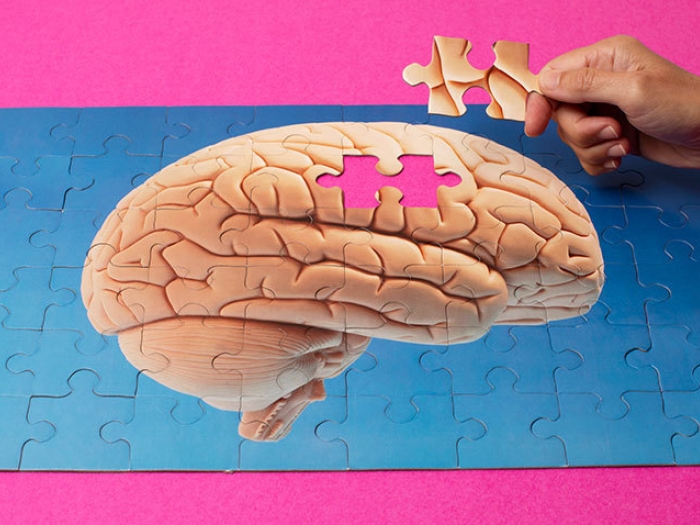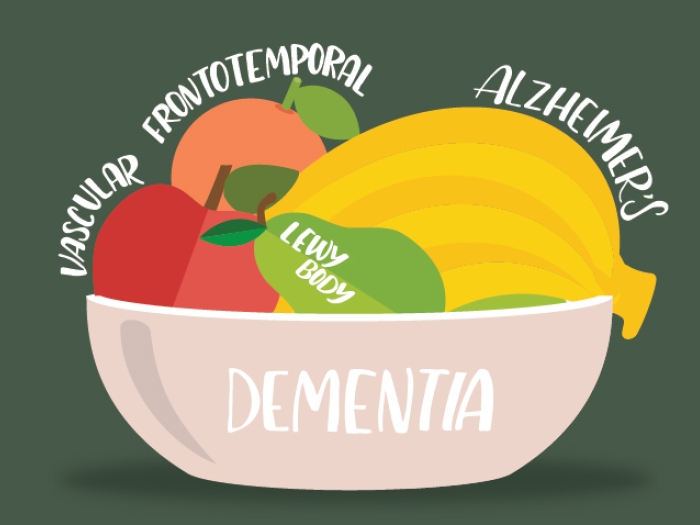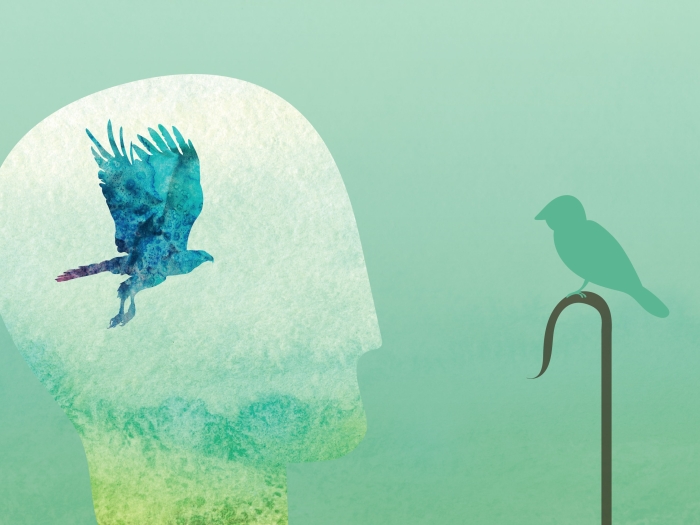Over time, small behaviors can do big things for your brain. Read on for a healthy memory toolkit.
7:00 AM
Author |

Many middle-aged adults are concerned about developing memory loss later in life. Although there is no guaranteed way to prevent memory loss, researchers are finding out more and more about how the brain works and how to keep it healthy.
MORE FROM MICHIGAN: Sign up for our weekly newsletter
Here are five important steps you can take:
Eat right
Choose vegetables, fish, eggs, legumes (lentils, beans), nuts, olive oil and fruits. Limit red meat, alcohol and sugar. Avoid processed and packaged food as much as possible. A healthful diet will also reduce the risk of type 2 diabetes, which is linked to Alzheimer's disease.
Research shows that keeping a food diary is a great way to be aware of what you eat. You can do this with pencil and paper, on your phone with the MyFitnessPal app or on a website such as MyFoodDiary.
Exercise
We can't stress enough the importance of all types of exercise. If you haven't exercised for a while, start by walking. Aim for 30 minutes of exercise five days a week. Talk with your doctor before you pursue a formal exercise program.
Some people find apps that track activity level helpful for motivation. A quick search for a pedometer app on your phone will offer a wide array of tools to try. The U.S. Department of Agriculture SuperTracker site includes a free food and physical activity tracker, as well as a weight manager. Your body and your brain will thank you for using these free tools.
Stay socially engaged
People are good for your brain — and those with a social network are less likely to develop dementia, according to a recent finding from the leader of the Michigan Alzheimer's Disease Center's Biostatistics and Data Core, Hiroko Dodge, Ph.D., who published a paper demonstrating these ideas.
SEE ALSO: Alzheimer's: Not Just a Disease for Older Adults
So, get out and about. Talk with others. Join groups. Maintain your involvement in clubs, organizations or your religious community. If you prefer staying home, make sure you have a pet or at least one or two friends or family members with whom you can socialize and have fun. Positive interaction with others stimulates the brain and helps it stay sharp. Social engagement also protects against anxiety, stress and depression, which can negatively affect brain function.
Get enough sleep
People tend to forget about the importance of sleep. While you sleep, your brain is cleansed and refreshed. Research shows that getting seven to nine hours of sleep a night is not a luxury; it's crucial for a healthy life.
Challenge your brain
The old saying "use it or lose it" applies to your memory and other cognitive functions. Working, volunteering, reading, doing puzzles, playing instruments and learning new skills are great ways to keep your brain healthy and active.
Recently, a host of computer programs, games and apps that promise to help preserve memory and other cognitive abilities have cropped up.
Paper activities such as Sudoku, crossword puzzles and Scrabble work fine. Here are a few digital tools to explore:
-
Two Dots has a clean, simple design and offers satisfying challenges that will draw you in and keep you coming back.
-
Bubble Ball is an excellent game for critical thinking and spatial problem-solving. The format is simple and the directions are clear, but the answers are not always easy. The goal is to get the ball to the flag using different props, reminiscent of a Rube Goldberg obstacle course.
-
Cut the Rope has a playful appearance, but don't be fooled; this game is a challenge. Whether you are 8 or 80 years old, it's an entertaining game with clever obstacles.
-
If you prefer the computer over your smartphone, check out GamesfortheBrain.com. There are many games to play, but one favorite is called Masterpieces.
Importantly, the best app or website for your brain is the one that works for you. Find the one that challenges you without increasing your stress, keeps you engaged and gives you enjoyment. With the right apps and websites, technology can be your brain and heart exercise partner.
For more information, visit the Michigan Alzheimer's Disease Center online, and learn about participating in a MADC research study.

Explore a variety of health care news & stories by visiting the Health Lab home page for more articles.

Department of Communication at Michigan Medicine
Want top health & research news weekly? Sign up for Health Lab’s newsletters today!





